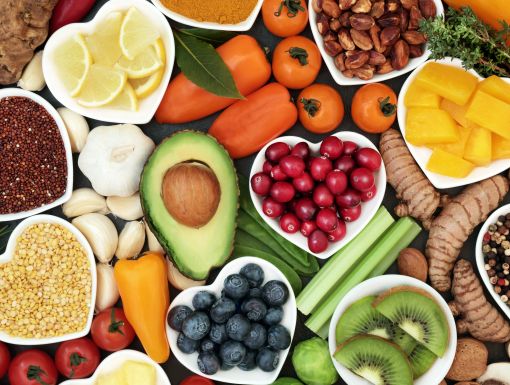
What Are the Best Supplements for Better Heart Health?
In discussing cardiovascular health, experts emphasize the importance of lifestyle changes such as diet and exercise. The American Heart Association recommends diets such as DASH and the Mediterranean diet, both low in saturated fats and sodium. The diets are rich in nutrients required in small amounts, such as antioxidant vitamins and minerals. We need to consume more of these nutrients through fruits and vegetables, but many people prefer supplements.
No agreement exists on which supplements are recommended or beneficial to general heart health. A recent study attempted to address this question to see which nutrients positively affected blood pressure, cholesterol and blood sugar, noting that high blood pressure, high cholesterol and diabetes are some of the leading risk factors for developing heart disease. A few supplements did show some benefits that lowered both systolic and diastolic blood pressure.
Magnesium
Magnesium plays a key role in the body, having to do with changing food into energy. It helps regulate blood sugar, promotes strong bones and supports a healthy immune system. Studies have shown that magnesium may be more critical for maintaining the heart's electrical properties, which could affect sudden cardiac death.
Only take a magnesium supplement if your doctor recommends it. A healthy diet with a standard multivitamin–multimineral supplement should help maintain your magnesium store. But, if you are looking for another reliable source of magnesium, try these foods:
- Pumpkin seeds
- Cooked spinach
- Almonds
- Black beans
- Baked potatoes
Omega-3
Omega-3 polyunsaturated fatty acids found in fish oil have been reported to reduce the risk of cardiovascular disease, lower blood pressure and promote heart health. And research shows that they may have an even more significant benefit: treating cardiovascular diseases and reducing the risk of repeat heart attacks.
Heart attack survivors may reduce their risk of a fatal episode by as much as 30% by consuming oily fish or taking supplements containing omega-3 fatty acids. Patients should speak with their doctors about whether a fish oil supplement is needed to protect their heart from cardiovascular disease.
Try these foods if you’re wanting to increase your omega-3 naturally:
- Salmon
- Walnuts
- Soybean oil
- Eggs
- Oysters
Vitamin D
Vitamin D works overtime as a nutrient that strengthens bones, supports immune function and helps the heart. There is some promising research that vitamin D may reduce the risk of heart failure, but it requires additional research.
Research has found that adults who take either moderate or high-dose daily vitamin D supplements have not had a reduced risk for having a heart attack, stroke or cardiovascular-related death. The best way to get more vitamin D is:
- Sunlight
- Physical activity
- Salmon
- Dairy
- Sardines
- Cod liver oil
Zinc
Zinc has been reported to improve heart function. It is an essential micronutrient that affects the heart, reduces inflammation and protects against chronic conditions like heart disease. Zinc supplements can also help lower triglyceride and cholesterol levels; other studies showed zinc could reduce blood glucose.
Studies have indicated that patients with heart failure often have zinc deficiencies. But too much zinc can be harmful and cause dizziness, headaches or an upset stomach. The recommended intake for zinc for men age 19 and older is 11 milligrams and for women, 8 milligrams.
Zinc can be found in the following foods:
- Oysters
- Crabs
- Lobsters
- Beans
- Nuts
- Eggs
While supplements may benefit heart health, they should not be used as a replacement for medical treatments and a healthy diet. Eating a heart-healthy diet and exercising have proven benefits for cardiovascular health.
Schedule an appointment with Richard Pearl, MD



